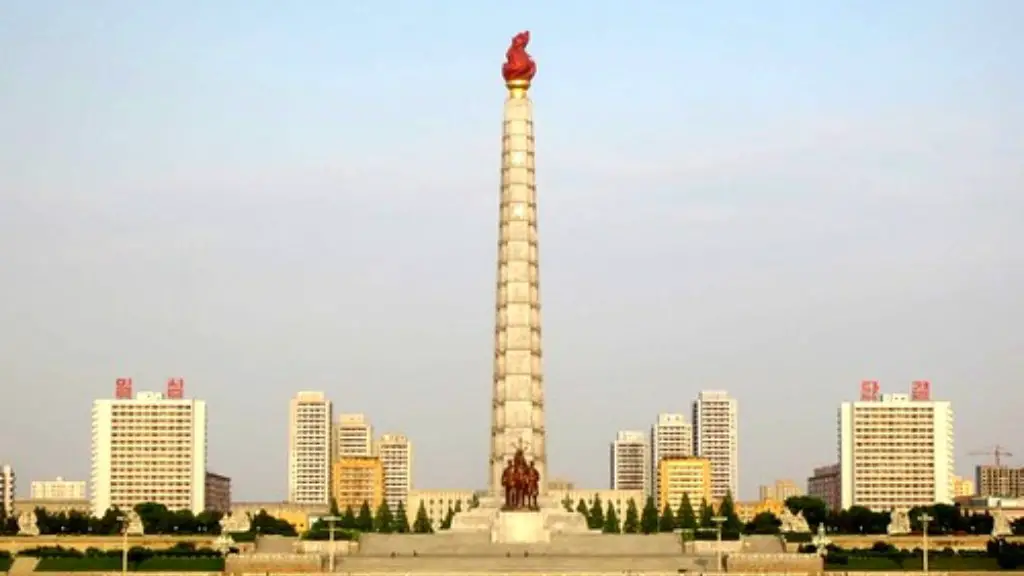Oppression of Basic Human Rights in North Korea
North Korea is a state where basic human rights are severely oppressed, with citizens having limited access to the internet and free speech being severely constrained. All citizens are forcibly assigned to a certain class, with freedoms and privileges determined by that class. Reports suggest that the country’s penal system is especially brutal and violence a daily occurrence, including public executions by order of the state. Human rights agencies consistently rank the north Korean government as the worst in the world with regard to these issues.
Vital civil and political freedoms, such as the right to vote, the right to a fair trial and the right to religious liberty, are all severely curtailed by the government of North Korea. According to Human Rights Watch, citizens of the state have no access to independent media and are subjected to censorship on an unprecedented scale. Citizens are not allowed to leave the country without permission and those who do might face punishment upon their return. Furthermore, penalties for political dissent and perceived ‘crimes’ are extremely harsh — even involving the use of torture.
The lack of the freedom of expression is a particular problem, with all media strictly monitored and censored by the government, resulting in state-controlled propaganda being broadcast. International organisations such as Freedom House describe North Korea as one of the world’s most oppressive countries in terms of censorship and lack of access to a free press.
Economic Struggles for North Koreans
In addition to the political struggles North Koreans endure, their economic situation is also a cause for great concern. The government issues rations to citizens to prevent widespread starvation, but supplies are unreliable and available in limited quantities. Many North Koreans suffer from diseases related to malnutrition and receive substandard medical care due to the poor health system and lack of access to better quality health services.
Unemployment is also a major problem in North Korea. The country’s state-run economy limits access to the global market and the majority of citizens do not have the freedom to find paid employment. Furthermore, due to strict regulation, international businesses are often wary of investing in North Korea and this has resulted in a sluggish economic growth rate.
The country is also facing an energy crisis. North Korea’s reliance on coal-powered electricity plants has resulted in air pollution levels that far exceed international standards. Financial constraints also limit the country’s ability to improve the infrastructure and technology needed to produce and store energy efficiently.
Humanitarian Crisis
The human cost of North Korea’s oppressive regime is was has been most concerning for many organisations. Reports suggest that North Korea’s orphanages suffer from overcrowding and a lack of resources, with a reported 140,000 children living in state-run facilities. Meanwhile, the country’s lack of access to modern healthcare has resulted in the spread of many infectious diseases and consequently, a high infant mortality rate.
Those who try to flee the country are often subjected to extreme punishment, with reports of harsh reprisals and death sentences being handed down by the government. According to the United Nations, as many as 300,000 citizens currently live outside of North Korea — as refugees or defectors.
Human Trafficking in North Korea
North Korea is also a major source of human trafficking, with victims being trafficked to China, Russia, Mongolia and other countries for forced labour, sexual exploitation and organ harvesting. Women in particular face multiple forms of exploitation due to the gender-based discrimination in the country’s legal system, with reports of female defectors being forced into marriages in order to secure asylum in other states.
International Sanctions
In response to reports of human rights violations, international sanctions have been imposed on North Korea by the United Nations. The threat of further sanctions — including economic sanctions — is a constant pressure on the North Korean government, though international agencies argue that these can have an unnecessarily negative impact on the country’s citizens, particularly the most vulnerable.
Conclusion
North Korea is a state where human rights are excessively violated, where citizens face extreme economic hardship and struggle to access health services. International sanctions are the only recourse available to address the abuses of the regime, but the effects of these measures often negatively impact the population. Legitimate concerns coming from international organisations and governments remain largely ignored by the authorities in North Korea, creating an oppressive environment that puts the lives of its citizens in danger every day.

